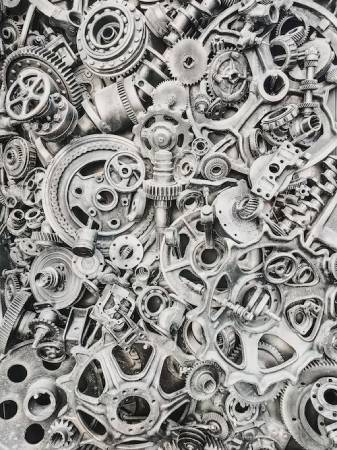
Mechanical engineering has performed a critical role in the development and development of producing strategies at some stage in records. From the earliest equipment and machines to the modern-day technological generation, mechanical engineering has been at the forefront of innovation and development in production.
The objective of this bankruptcy is to explore the evolution of mechanical engineering inside the context of producing. It will talk the key milestones, innovations, and contributions which have fashioned the field and propelled the producing industry ahead.
This bankruptcy will focus on the ancient development of mechanical engineering in production, beginning from its origins to the present day. It may even highlight the role of mechanical engineers inside the production industry and observe the modern-day trends, challenges, and destiny possibilities.
Early Developments in Mechanical Engineering
Mechanical engineering finds its roots in historical civilizations, wherein early inventors and engineers devised easy machines and tools for numerous applications. The need for greater efficient methods of manufacturing and transportation drove the improvement of mechanical engineering principles.
During the Renaissance and the Industrial Revolution, tremendous improvements emerged in production. The invention of the steam engine by using James Watt and the creation of mechanized manufacturing strategies marked a turning point in mechanical engineering and production.
Throughout records, severa inventors and engineers have contributed to the sector of mechanical engineering in production. Figures like Leonardo da Vinci, Eli Whitney, and Thomas Newcomen made groundbreaking contributions to the improvement of machines, gear, and manufacturing techniques
Industrial Revolution and the Rise of Mechanical Engineering
The Industrial Revolution, spanning the overdue 18th and early 19th centuries, had a profound effect on mechanical engineering and manufacturing. It added about a shift from guide labor to device-based totally manufacturing, revolutionizing industries such as textiles, transportation, and agriculture.
The Industrial Revolution witnessed sizeable advancements in manufacturing processes. Innovations just like the use of interchangeable parts, assembly lines, and mass manufacturing techniques caused expanded productiveness, performance, and standardization.
Visionaries along with Henry Ford and Frederick Taylor performed pivotal roles during the Industrial Revolution. Ford’s introduction of the assembly line and Taylor’s scientific control principles transformed production practices, emphasizing efficiency, division of exertions, and time-movement research.
Modern Mechanical Engineering in Manufacturing
Modern mechanical engineering has been fashioned by using technological improvements. Advanced substances, along with composites and alloys, have greater the performance and durability of synthetic products. Precision machining strategies and laptop numerical manage (CNC) machines have revolutionized manufacturing techniques.
Automation and robotics have emerge as integral to fashionable production. Industrial robots perform responsibilities with precision and pace, increasing manufacturing charges and ensuring regular nice. Automated meeting lines and clever factories have in addition optimized production strategies.
Computer-aided design (CAD) and computer-aided production(CAM) have transformed product layout and production procedures. CAD software lets in engineers to create particular three-D fashions, whilst CAM software program allows the perfect manage of manufacturing equipment, ensuing in quicker prototyping and stepped forward accuracy.
The integration of synthetic intelligence (AI) and system gaining knowledge of (ML) technology has opened new possibilities in production. AI-powered systems permit predictive renovation, actual-time monitoring, and system optimization, main to progressed performance, reduced downtime, and improved quality control.
Role of Mechanical Engineers in Manufacturing
Mechanical engineers play a crucial position within the design and development of machinery and equipment utilized in manufacturing. They observe standards of physics, substances technology, and mechanical structures to create green and dependable machines that meet specific manufacturing necessities.
Mechanical engineers are chargeable for optimizing manufacturing tactics. They examine production workflows, identify bottlenecks, and put into effect enhancements to enhance performance, lessen waste, and increase productivity.
Mechanical engineers make contributions to first-rate control and guarantee in manufacturing. They increase and put in force testing protocols, set up best requirements, and behavior inspections to make sure that products meet specifications and observe guidelines.
In the era of sustainable production, mechanical engineers play a important position in integrating environmental issues into the design and production strategies. They focus on growing eco-friendly practices, power-green structures, and sustainable substances to decrease the environmental effect of producing operations